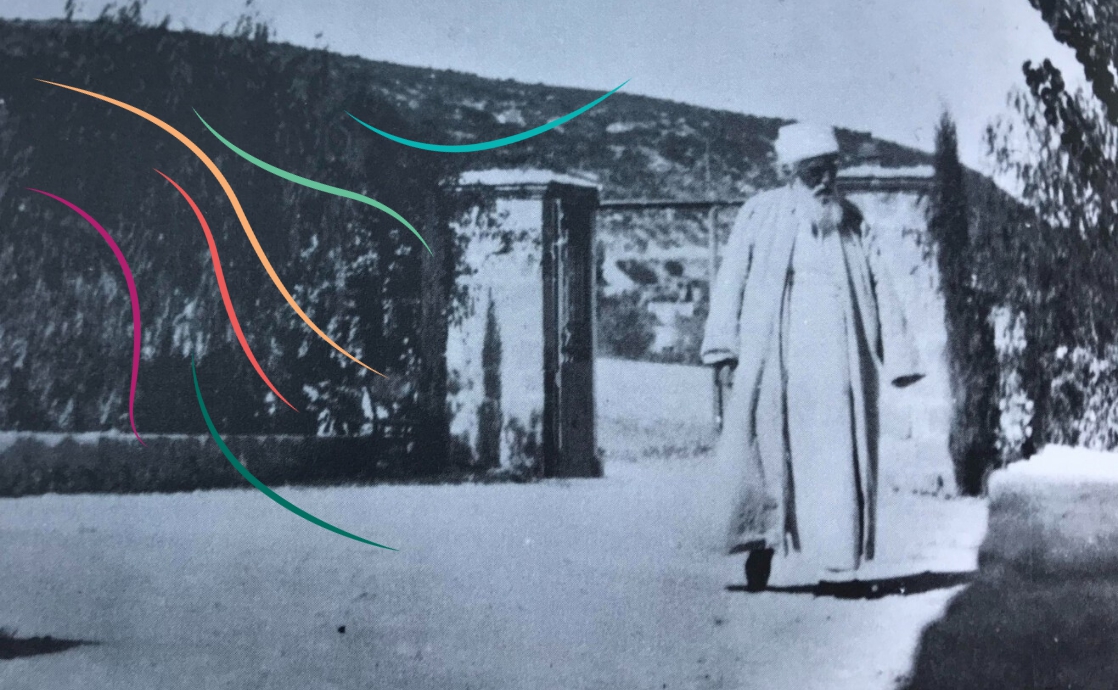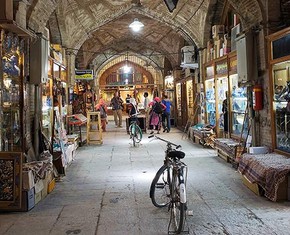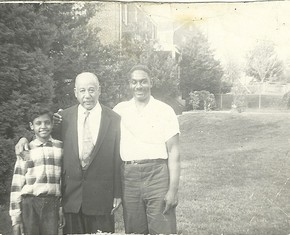The views expressed in our content reflect individual perspectives and do not represent the authoritative views of the Baha'i Faith.
Rabbi J. Leonard Levy, of Pittsburgh’s Rodef Shalom congregation from 1901 until his passing in 1917, had the great distinction of inviting Abdu’l-Baha to give a public address in Pittsburgh, my hometown.
Abdu’l-Baha accepted Rabbi Levy’s invitation.
This previously unscheduled speaking event entailed a change in Abdu’l-Baha’s itinerary. On Sunday, May 5, 1912, The Pittsburg Leader (sic: Pittsburgh used to be spelled without the final “h”) publicized this event, as follows:
BAHAI LEADER TO COME HERE
_____
Abdul Baha Will Hold Reception on Tuesday and Speak in Evening
_____
WANTS CHURCH UNITY
_____
Rabbi J. Leonard Levy, of the Rodeph Shalom temple, announced at his service, yesterday morning, that Abdul Baha, some times known as Abbas Effendi, is expected in Pittsburg Tuesday, and will speak as [sic: “at”] the Hotel Schenley on Tuesday evening. The affair is free and all are invited. Abdul Baha will stay at the hotel during his short visit of one day, and will receive any who may care to meet him. Announcement of his coming will be made in many of the churches this morning.

According to reporter Gertrude Gordon of The Pittsburg Press on Sunday, March 24, 1912, this is how Rabbi J. Leonard Levy came to invite Abdu’l-Baha to Pittsburgh:
An invitation has been extended to Abdul Baha Abbas Effendi, the head of the Bahai religion, to speak in Pittsburg at Rodeph Shalom temple, when he comes to America, April 11. When Rabbi J. Leonard Levy learned that the venerable leader of the new interpretation of the religion which is interesting Protestants, Catholics, Jews, Mohammedans, Buddhists and Persians, all over the world, would speak in this country, he immediately sent him an invitation to come to Pittsburg. Friday, Dr. Levy received a letter from Morza [sic: “Mirza”] Ahmad Sohrab of Persia, now in Washington, that he would arrange with Abbas Effendi to make a change in his itinerary as soon as the instructor reached New York.
RELATED: An Antidote for Anti-Semitism
On Tuesday, May 7, 1912 — the day after he famously declared, in Cleveland, that “the American continent … will lead all nations spiritually” — Abdu’l-Baha spoke in Pittsburgh, known both as “the Steel City” and as the “City of Bridges,” in the grand ballroom of the prestigious Schenley Hotel, to an audience of around 400 listeners. He said:
I have come from the Orient to visit your country. Surely this continent is praiseworthy from all points of view, and there are signs of prosperity everywhere. The people show refinement, and evidences of progressive civilization abound. I will give you a brief exposition of the fundamental principles of Baha’u’llah’s teachings in order that you may be informed of the nature and significance of the Baha’i movement. …
About sixty years ago the greatest enmity and strife existed among the various peoples and religious denominations of Persia. Throughout the world generally war and dissension prevailed. At this time Baha’u’llah appeared in Persia and began devoting Himself to the uplift and education of the people. He united divergent sects and creeds, removed religious, racial, patriotic and political prejudices and established a strong bond of unity and reconciliation among varying degrees and classes of mankind. …
In His successive exiles from country to country up to the time of His ascension from this world, He was enabled to promulgate His teachings, even from prison. … Some of these principles are as follows.
First, it is incumbent upon all mankind to investigate truth. If such investigation be made, all should agree and be united, for truth or reality is not multiple; it is not divisible. The different religions have one truth underlying them; therefore, their reality is one. … By investigating the truth or foundation of reality underlying their own and other beliefs, all would be united and agreed, for this reality is one; it is not multiple and not divisible.
The second principle or teaching of Baha’u’llah is the proclamation of the oneness of the world of humanity. …
The third principle or teaching of Baha’u’llah is the oneness of religion and science. …
The fourth principle or teaching of Baha’u’llah is the readjustment and equalization of the economic standards of mankind. …
The fifth principle or teaching of Baha’u’llah is the abandoning of religious, racial, patriotic and political prejudices, which destroy the foundations of human society. …
The sixth principle or teaching of Baha’u’llah concerns the equality of man and woman. …
Among other teachings and principles Baha’u’llah counsels the education of all members of society. …
Baha’u’llah teaches that the world of humanity is in need of the breath of the Holy Spirit, for in spiritual quickening and enlightenment true oneness is attained with God and man. …
These are a few of the teachings and principles of Baha’u’llah, briefly presented so that you may be informed of their significance and purpose and find them a stimulus to your knowledge and actions. I ask God to assist this prosperous and progressive nation and to bestow His blessings upon this just government and wonderful continent of the West.
This memorable speech is perhaps best known for Abdu’l-Baha’s prophecy that the women of the world would one day end war forever: “In truth, she will be the greatest factor in establishing universal peace and international arbitration. Assuredly, woman will abolish warfare among mankind.”
On May 7, 2012, the Baha’is of Pittsburgh hosted a centennial observance of this historic event, and invited Martha L. Berg, Archivist of the Rodef Shalom Congregation in Pittsburgh, to speak. She later wrote in HaKesher, the Congregation’s newsletter:
As I prepared my remarks for the anniversary celebration, I was struck over and over again by the similarities between Rabbi J. Leonard Levy and Abdu’l-Baha, despite their great differences in age, nationality, education, and life experience. … Both Abdu’l-Baha and Rabbi Levy advocated interracial equality at a time when that was decidedly not a mainstream attitude. In 1903 Rabbi Levy gave a lecture series at Tuskegee Institute for 2000 “colored” teachers; in 1905 he invited Booker T. Washington to preach from the bimah at Rodef Shalom, and in 1904 he delivered the commencement address at Howard University. Abdu’l-Baha also spoke at Howard on his 1912 tour, and he created quite a stir in Washington circles by insisting that the African-American attorney Louis Gregory sit in the place of honor at his right at a dinner held in Abdu’l-Baha’s honor by a prominent Persian diplomat. The idea of a special spiritual destiny for the United States of America is also common to both leaders.
Sadly, Pittsburgh still has racially and ethnically self-segregated neighborhoods today. Religious prejudice and hatred have not disappeared. The city had a violent 2018 incident of anti-Semitism — the “Tree of Life” synagogue mass shooting in the Squirrel Hill neighborhood where I live — that shocked America and the world.
RELATED: Pittsburgh: How We Can All Respond to Anti-Semitism
In Pittsburgh, and around the world, we still have a long way to go before we reach the Baha’i ideal of “… the abandoning of religious, racial, patriotic and political prejudices,” but the coming together of various Faiths – as Abdu’l-Baha and Rabbi Levy amply demonstrated in 1912 – represents a significant step toward a prejudice-free future.
















Comments
Sign in or create an account
Continue with Googleor